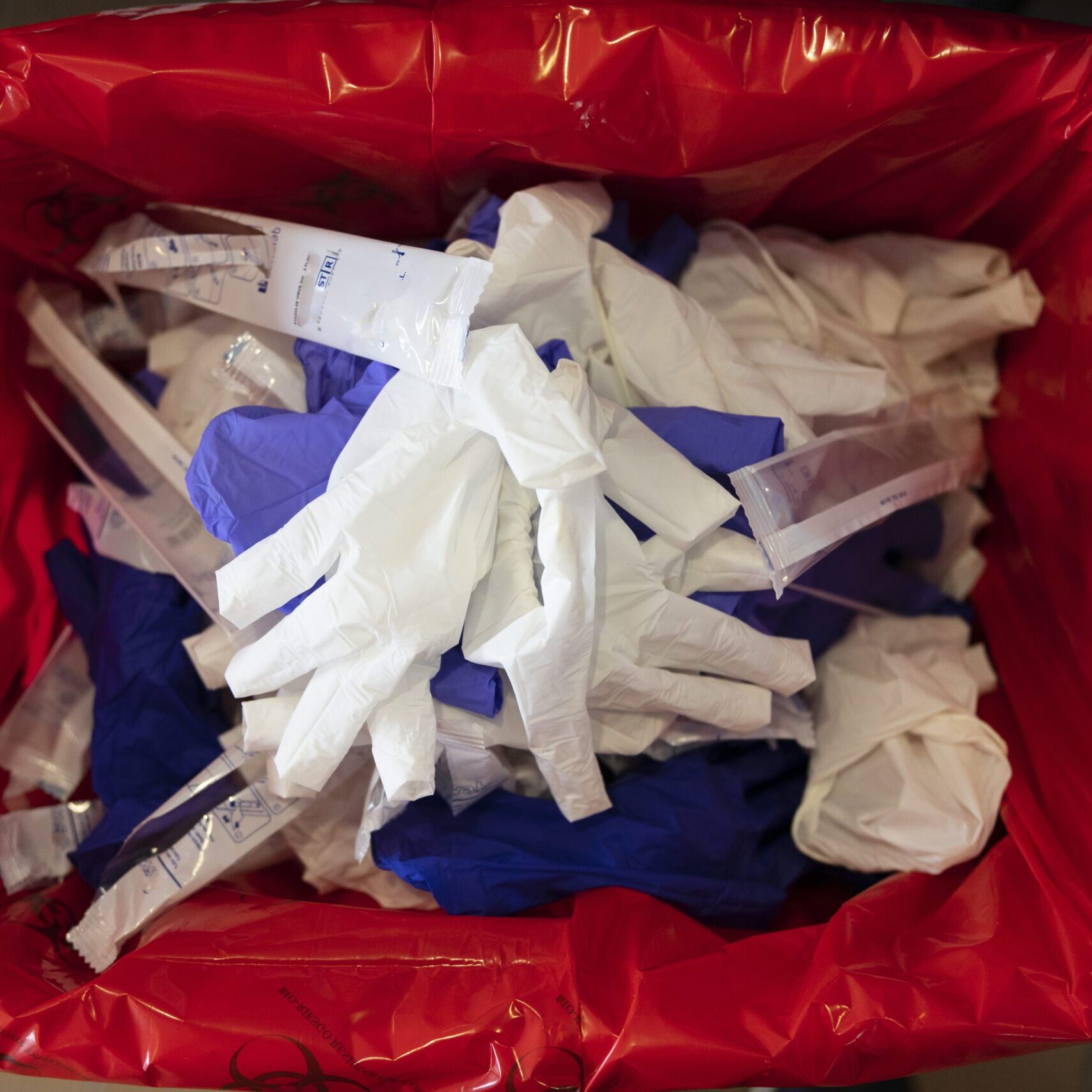New Jersey medical waste regulations are among the most detailed in the country, requiring facilities to register, report, store, transport, and dispose of waste in compliance with strict guidelines. This guide summarizes key state and federal rules and provides links to authoritative resources that healthcare professionals in New Jersey can use as a reference.
A Guide to New Jersey Medical Waste Regulations
Healthcare facilities in New Jersey generate a wide variety of regulated medical waste (RMW), including sharps, pharmaceuticals, and infectious materials. Proper management of these waste streams is not only essential for protecting public health and the environment but also for avoiding costly penalties from state and federal regulators. For hospitals, clinics, dental offices, pharmacies, and other generators, staying on top of these requirements is critical to ensuring safety and compliance.

New Jersey State Requirements
The New Jersey Department of Environmental Protection (NJDEP) oversees the management of regulated medical waste under the Solid Waste Regulations (N.J.A.C. 7:26) and related programs. The state’s program was launched in 1988 to ensure that medical waste is tracked, treated, and disposed of responsibly. See N.J.A.C. 7:26 Subchapter 3A for applicable regulations. Key requirements include:
- Generator Registration – Facilities must register with NJDEP and obtain a Regulated Medical Waste (RMW) identification number. See NJDEP’s Generator Resources.
- Annual Reporting – Generators are required to submit annual reports detailing how their waste was managed.
- Packaging & Storage – RMW must be packaged in red bags and placed into rigid containers. Sharps require leak-proof, puncture-resistant containers. Storage time limits apply depending on temperature.
- Transporters – Only NJDEP-licensed transporters, like ASMAI, may move RMW. See the Transporter Fact Sheet.
- Tracking Forms – Generators and transporters must complete tracking forms to document the full cradle-to-grave management of waste.
- Treatment & Disposal – Medical waste must be rendered noninfectious before landfilling or incineration. Alternative treatment technologies must be reviewed and approved by NJDEP. See Alternative Technologies.
In addition to infectious and sharps waste, hazardous chemical and pharmaceutical waste must be managed under the New Jersey Hazardous Waste Regulations (N.J.A.C. 7:26G). Generators are categorized by volume (large, small, or very small quantity) and must comply with requirements for storage, labeling, reporting, and disposal.
Federal Regulations That Apply
Healthcare facilities in New Jersey must also comply with federal agencies and rules governing medical and hazardous waste:
- OSHA – Establishes employee protections, including the Bloodborne Pathogens Standard (29 CFR 1910.1030) to prevent exposure. See OSHA Overview.
- DOT / PHMSA – Oversees classification, packaging, and transportation of RMW under the Hazardous Materials Regulations. See DOT Infectious Substances Overview and Packaging Requirements (49 CFR 173.197).
- EPA – Regulates hazardous waste under Resource Conservation and Recovery Act (RCRA) and provides guidance on medical waste. See EPA Medical Waste.
- CDC – Publishes infection control guidance for handling regulated medical waste. See CDC Medical Waste Guidance.
- FDA – Regulates reusable sharps containers as Class II medical devices. See FDA Sharps Disposal in Healthcare Facilities.
- DEA – Oversees pharmaceutical waste disposal when controlled substances are involved. See DEA Drug Disposal Information.
Risks of Ignoring New Jersey Medical Waste Regulations
Failing to comply with New Jersey medical waste regulations puts healthcare facilities at serious risk. Improper handling or disposal of regulated medical waste can lead to employee injuries from needlesticks and sharps, exposing staff to bloodborne pathogens such as HIV and hepatitis. Inadequate storage or treatment may release dangerous chemicals, pharmaceuticals, or infectious agents into the environment, threatening community health and safety. Beyond the physical risks, facilities also face steep fines, legal action, and reputational damage when state or federal agencies uncover violations. Compliance isn’t just about avoiding penalties—it’s about protecting patients, employees, and the surrounding community from preventable harm.
To avoid these risks and ensure peace of mind, healthcare providers across the state turn to Advant-EDGE Solutions of Middle Atlantic, Inc. (ASMAI) for trusted compliance and disposal services.
Compliance and Training Support
Navigating New Jersey medical waste regulations can be overwhelming for busy healthcare facilities. Beyond waste collection and disposal, facilities must also demonstrate compliance with OSHA, DOT, HIPAA, and other standards. Advant-EDGE Solutions of Middle Atlantic, Inc. (ASMAI) offers a comprehensive compliance and training program designed to protect facilities from fines and risks. Services include:
- Facility Audits – Covering regulated medical waste, hazardous waste, OSHA standards, HIPAA, PPE, fire safety, and more.
- Employee Training – In-person and online training for DOT compliance, OSHA Bloodborne Pathogens, Hazard Communication, HIPAA, and other critical areas.
- Emergency and Safety Plans – Development and updates of required plans such as Exposure Control Plans, Hazard Communication Programs, and Emergency Action Plans.
- Online Portal Access – Centralized access to manifests, training records, pickup schedules, and compliance documentation.

Partner with ASMAI for Compliance
With constantly evolving state and federal requirements, healthcare facilities cannot afford to fall behind. ASMAI provides regulated medical waste disposal, sharps waste disposal, pharmaceutical waste management, and full compliance & training support. Our expertise helps hospitals, clinics, and other healthcare providers remain fully compliant while minimizing risks.
Our solutions include:
By partnering with ASMAI, you gain not only reliable waste removal services but also access to compliance training, audits, and recordkeeping tools. You’ll gain peace of mind knowing your waste streams are managed properly, your staff are trained, and your facility is protected from regulatory risk.
Contact us today to review your regulatory compliance needs and request a free quote.
